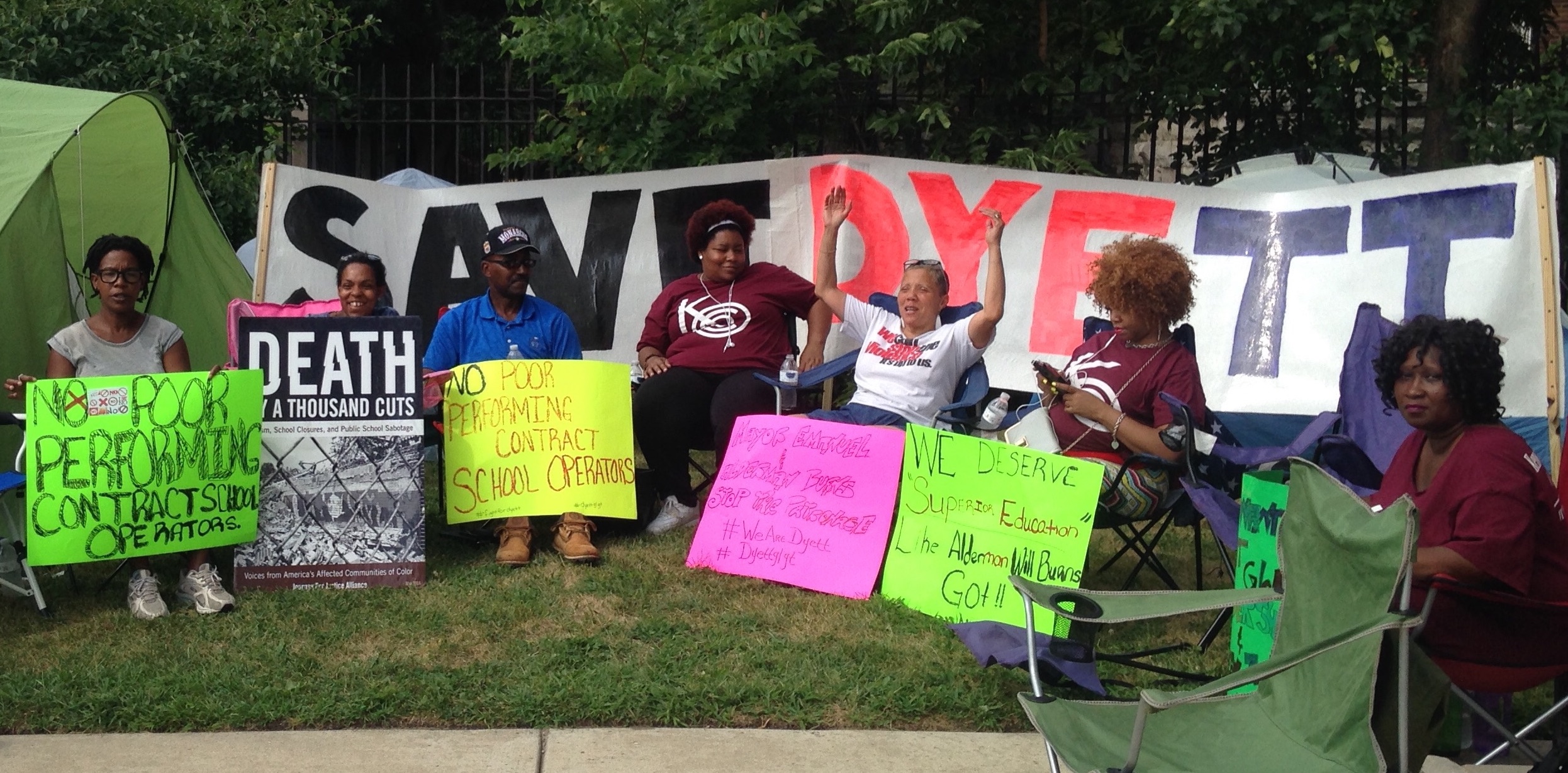Hunger Strike: The Fight for Dyett High School in Chicago

By Michelle Gunderson.
Twelve people sit in a circle under the trees outside Dyett High School in Chicago on a hunger strike. They share stories of their experience with Chicago schools – teachers they have loved, principals they have battled, the times they have been arrested fighting for equity in our schools. Those of us who support this courageous act sit to the outside of the circle offering our support through our presence and willingness to listen.
The twelve people have committed to withholding food – parents, grandparents, teachers, a minister, and community members – forming a hunger strike to keep the only open enrollment high school in the Bronzeville community of Chicago.
The demand is simple – the hunger strikers want a public high school designed by the community to re-open at Dyett, not a contract school from a failed supplier or a charter operation. The proposal for the Dyett Global Leadership and Green Technology School comes from extensive outreach in focus groups and town hall meetings with the community. Over a four year period a coalition of community members and education experts built the plan.1 It is a vision for a high school that would build a center of learning and justice for our city’s children.
This is the point where we need to stop and ask ourselves – how far would we be willing to go to ensure we had an open enrollment high school in our own communities? Why would community members be driven to such a drastic action as to risk their health and well-being?
Slow and Intentional Destruction of a School
There has been a long history of ignoring community needs and input in the Bronzeville neighborhood. In 2012 Chicago’s appointed school board voted to “phase out” Dyett High School, but the path of intentional destruction was over a decade in the making.
Rhoda Rae Gutierrez and Pauline Lipman consider Dyett High School a victim of the 3Ds of education reform – destabilization, disinvestment, and disenfranchisement. Dyett experienced destabilizing upheaval in its student population when the Chicago Public Schools decided to “turn around”, convert to charter, or create selective enrollment in the 20 area schools near Dyett. Students were sent from school to school with very little cohesion to community, teachers, or curriculum. There was Hunger Strike: The Fight for Dyett High School in Chicago - Living in Dialogue:
